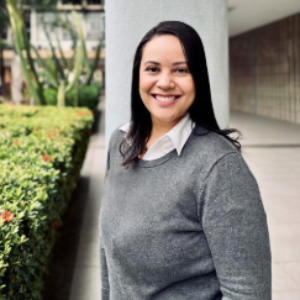Title : Analysis of operational risk management of health and safety criteria within a multi-criteria analysis methodology for a subsea equipment decommissioning project on an oil and gas production platform
Abstract:
The useful life of several offshore production units is coming to an end and in recent years, there has been growing concern from many sectors about how to deal with the decommissioning of these structures when their operational life ends (Watson et al., 2023). According to Caprece et al., (2023) due to the large number of interested parties involved, the decommissioning of these structures has emerged as a critical task due to the unpredictability of costs, high operational risks, potential social impacts, and addressing legal issues and environmental protection.
To assist the decision-making process committed to the various satakeholders, the decision-maker can use advanced approaches, such as Multi-Criteria Decision Analysis (MCDA), a new tool that improves the decision-making process ranking the different decommissioning options of O&G subsea assets. This model considers several attributes, divided between 6 criteria: Technical, Environment, Social, Economic, Life Cycle Assessment of Waste and Health&Safety, the main focus of this article. (COPPE, 2022).
Health and Safety aspects are assessed through five sub-criteria, three relating to Occupational Health (Exposure to Toxic Materials, Exposure to NORM, Exposure to Hyperbaric Conditions) and two relating to Worker Safety criteria (Fatal Accidents and Impact of Other Users of the Sea). The scores for the sub-criteria are determined through a risk assessment, determined in each of the decommissioning alternatives listed and their respective related activities.
Decisions regarding decommissioning involve multiple stakeholders and are multidisciplinary in nature and often conflicting (Martins et al., 2020) and their impacts involve several interest groups. The application of the MCDA methodology can guide the decision maker to find the right decision. In this way, this article intends to present the contribution of the risk analysis carried out in the Health and Safety criteria to the process, which is intended to be based on the knowledge of the activities of workers who are involved in the execution of decommissioning activities of underwater oil and gas production equipment, presenting data that were tested in a project to decommission submarine equipment from an oil and gas production platform, located off the Brazilian coast.
Audience Take Away Notes:
- Explain how the audience will be able to use what they learn? The audience will have the opportunity to expand their understanding of health and safety risk analysis in decommissioning activities, particularly focusing on submarine systems of offshore oil and gas production platforms. Additionally, they will gain insight into the application of Multi-Criteria Decision Analysis (MCDA) developed by COPPE/UFRJ to facilitate decision-making in complex processes.
- How will this help the audience in their job? Health and safety risk analyses, as well as the application of the MCDA methodology, can help the audience to enhance data and perspectives in the development of decommissioning projects for subsea equipment on offshore oil and gas production platforms, considering more accurately the interests of the various stakeholders involved in the process.
- This research can advance the field of operational risk analysis in decommissioning processes by deepening the understanding of the activities performed by workers and closely aligning risk analysis with real activities. It aims to contribute to the development of research in this area while also enhancing the analysis methodology itself (Daniellou, 2007).



